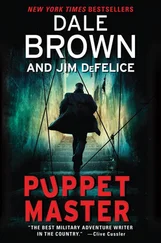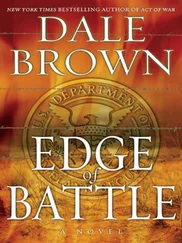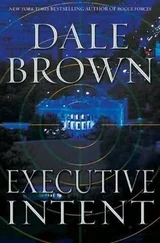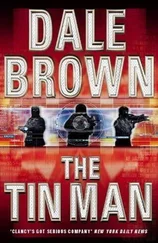“Justice does not agree,” Attorney General George Wentworth interjected. “The invasion of Afghanistan to eliminate the Taliban and al Qaeda was a combat operation against a terrorist organization…”
“But the Taliban was never considered the legitimate government in Afghanistan,” Collins argued, “and we certainly did not ‘declare war’ on either the Taliban or al Qaeda…”
“What about Hamas in Libya and Lebanon, al Qaeda in Afghanistan and Iraq…?”
“Making war and declaring war are two different things, Mr. Chamberlain, and you know it,” Collins interjected. “The President has full authority to take action against anyone or anything that threatens the peace and security of the United States, within the limits of the War Powers Act. But if the President wants authority and funding to pursue terrorists around the world for the next ten years, he needs an act of Congress.”
“In your opinion.”
“In my opinion, yes,” Collins said, “but so far the staff concurs.”
“You concur because it’s the safest and most politically nonconfrontational path, not because it’s right,” Chamberlain admonished. He turned to the President and went on, “Mr. President, I believe you can act at any time. The rumors have been circulating for weeks that you intend to do this: TV commentators have been examining the issue from top to bottom and I haven’t seen one roadblock presented yet…”
“Except the fact there’s no legal precedent for it,” Collins interjected. “Mr. President, let the staff do their job. Delay your decision awhile longer. Let us keep the topic alive with hints, rumors, and questions, and let the press and the pundits address the questions for us.”
“And how many more attacks do we have to endure like this before we act, Miss Collins?”
“What about your Task Force TALON?” Collins asked with the same acidity with which Chamberlain queried her. “That was supposed to be the prototype antiterrorist unit, sweeping out around the world hunting down the bad guys, and as far as anyone knows they’re still sitting on their hands in New Mexico.”
“They are most certainly not ‘sitting on their hands’…!”
“My last report tells me that there is a significant policy and leadership rift between the people you chose for that unit,” Collins said. “I’ve been told that half the unit doesn’t even train together and there is almost constant infighting because of a general disagreement on how the unit should be organized, led, and deployed.”
“Where are you getting this information, Collins?” Chamberlain asked. “Have you been briefed by either myself or Sergeant Major Jefferson…?”
“That’s not important. What is important is if the information is accurate or not. Is it?”
The President looked at Chamberlain, silently ordering him to answer. Chamberlain shot Collins an evil glare, but nodded toward the commander in chief. “There has been some…friction between the military and nonmilitary elements, Mr. President,” he conceded. “That was expected and it is being cleared up as we speak.”
“Robert, everything hinges on that team being ready when I go before the congressional leadership to announce my intention to ask for a declaration of war against terrorism,” the President said, the concern evident in his voice. “We have to be ready to act as soon as I get the vote, and I mean out the door and in action, not just ‘ready’ to get started. What’s the problem?”
“It’s the first dedicated full collaboration between the military special-ops community and federal law enforcement, sir—there were bound to be difficulties in establishing set procedures, tactics, chains of command, and exchange of intelligence,” Chamberlain said. “We’re attempting something that’s never been tried before: one command that controls both civil and military personnel, rather than two separate entities that attempt to work together but in fact have completely different priorities and procedures.”
“They’re all professionals, and they’re all federal employees—they know how to follow orders, don’t they?” Collins asked. “Just tell them to get their asses in gear and get the job done!”
“It’s not as simple as that, Miss Collins,” Chamberlain said. “They are professionals, and the last thing they need is an un-elected bureaucrat from Washington with no military or intelligence training telling them how to do their jobs…”
“Then maybe we picked the wrong man to form this task force,” Collins interjected.
“I serve at the pleasure of the President, same as you—he can remove me at any time and for any reason,” Chamberlain shot back at her. “But it goes to show how little you know of how experts work…”
“Experts? Mr. Chamberlain, correct me if I’m wrong, but you picked a young female FBI agent with very little field experience, and a young army major with absolutely no field experience, to lead this task force…”
“I picked a dedicated group of professionals with unique talents to head this task force, Miss Collins,” Chamberlain said resolutely. “I have every confidence in their abilities.” An Air Force communications officer dropped a message in front of him. While glancing at the message, Chamberlain went on, “It’ll just take time to get them ready for action. They will…” His facial expression became more and more disbelieving as he read, until finally, he said, “Excuse me, Mr. President, let me take care of this.” He picked up the phone and dialed a number, his voice shaking slightly as he gave the communications officer the number.
As he was speaking on the phone, Secretary of State Parker took a message handed to him by an aide: “Mr. Chamberlain, I’ve just received a message from the foreign minister of Brazil that I think you should know about…”
“I’ll be there in a sec, Chris.”
“What is going on, Chris?” the President asked.
“Sir, the Brazilian foreign ministry wants to know why we’ve sent a strike team with an armed robot down to Brazil to kill federal military police forces.”
The President turned to look at Chamberlain…but the National Security Adviser was already sitting with his mouth agape in surprise as he listened to his aide’s report. “Robert…”
“Tell them to get their asses back here, on the double!” he hissed into his phone.
“Mr. Chamberlain!” the President shouted.
“Do it!” Chamberlain snapped into the phone, then hung up. He took a deep breath, then said, “Mr. President, I’ve just received a report from my aide, Sergeant Major Jefferson. He is in São Paulo, Brazil, with elements of Task Force TALON.”
“What?” the President exclaimed. “Who in hell authorized this?”
“I did, sir, on my own initiative,” Chamberlain replied.
“Explain.”
“The cocommander of the task force, Major Richter, received information from a highly reliable civilian source of the location of a senior member of a terrorist group known as GAMMA that may have been responsible for the nuclear blast in Kingman City,” Chamberlain explained. “Without prior authorization, Major Richter prepared to take one of his robotic units, what he calls a CID, or Cybernetic Infantry Device, down to Brazil to capture this suspect. Sergeant Major Jefferson intercepted the major before he could depart.”
“So how did they end up in Brazil?”
“I verified the information Major Richter had with Kristen Skyy’s producers and top executives at SATCOM One News in New York,” Chamberlain went on. “The information was good, so I authorized the investigation.”
“With a damned armed robot?”
“No, sir. I told Sergeant Major Jefferson this was to be an investigation only. They apparently decided to bring their manned robot weapon system with them.”
Читать дальше












